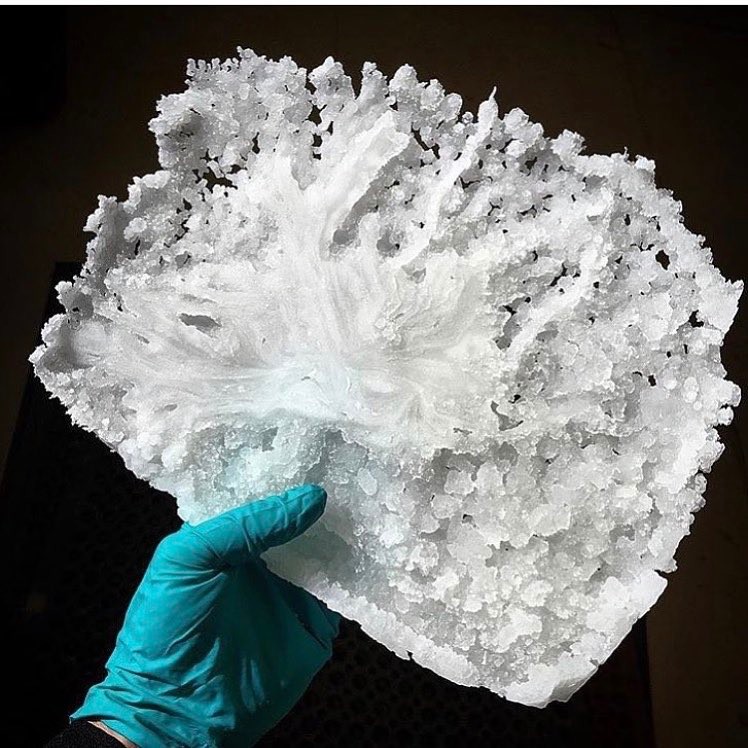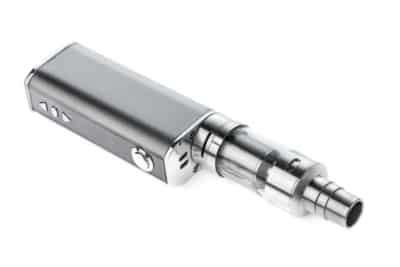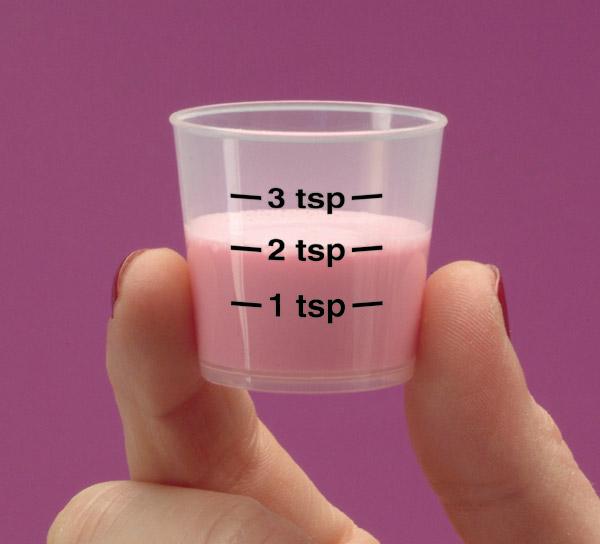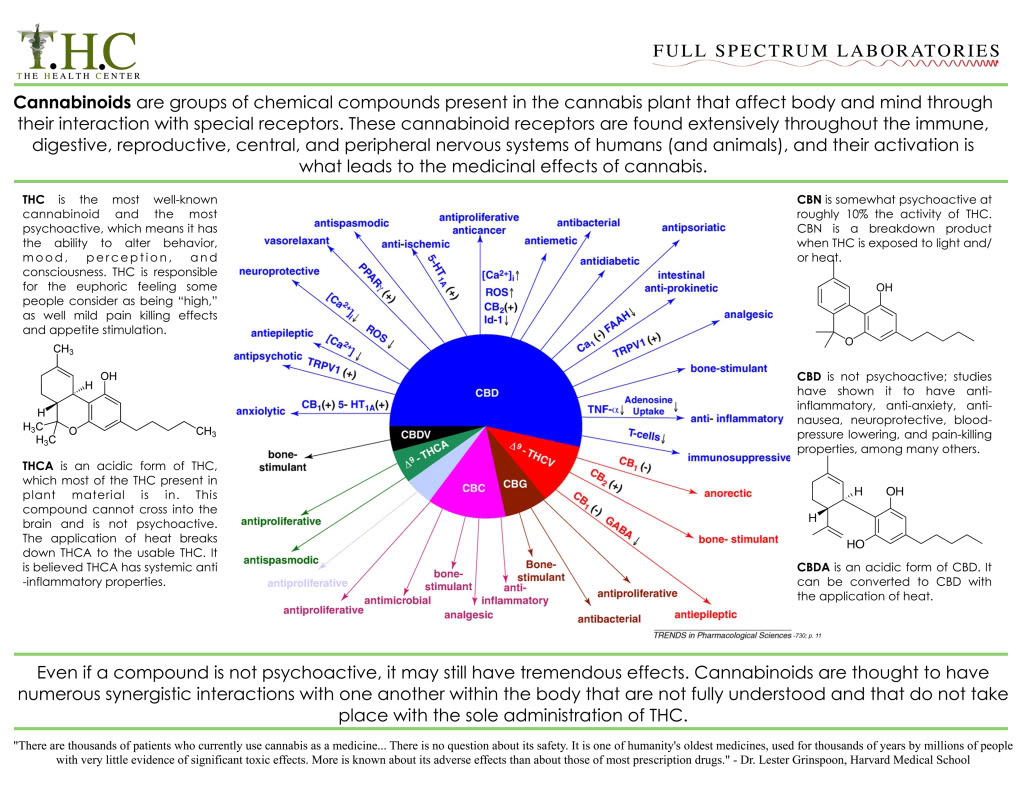Day: April 30, 2018
Basic Introduction to CBD
Everything you need to know about CBD oil
What is CBD oil?
CBD is one of many compounds, known as cannabinoids, that are found in the cannabis plant. Researchers have been looking at the potential therapeutic uses of CBD.
Oils that contain concentrations of CBD are known as CBD oils. The concentration and uses of different oils vary.
Is CBD marijuana?

Until recently, the most well-known compound in cannabis was delta-9 tetrahydrocannabinol (THC). This is the most active ingredient in marijuana.
Marijuana contains both THC and CBD, but the compounds have different effects.
THC is well-known for the mind-altering “high” it produces when broken down by heat and introduced into the body, such as when smoking the plant or cooking it into foods.
Unlike THC, CBD is not psychoactive. This means that it does not change the state of mind of the person who uses it. However, it does appear to produce significant changes in the body and has been found to have medical benefits.
Most of the CBD used medicinally is found in the least processed form of the cannabis plant, known as hemp.
Hemp and marijuana come from the same plant, cannabis sativa, but they are very different.
Over the years, marijuana farmers have selectively bred their plants to be very high in THC and other compounds that interested them, either for a smell or an effect they had on the plant’s flowers.
On the other hand, hemp farmers have not tended to modify the plant. It is these hemp plants that are used to create CBD oil.
How CBD works
All cannabinoids, including CBD, attach themselves to certain receptors in the body to produce their effects.
The human body produces certain cannabinoids on its own. It has two receptors for cannabinoids, called CB1 receptors and CB2 receptors.
CB1 receptors are found all around the body, but many of them are in the brain.
The CB1 receptors in the brain deal with coordination and movement, pain, emotions and mood, thinking, appetite, and memories, among others. THC attaches to these receptors.
CB2 receptors are more common in the immune system. They affect inflammation and pain.
It used to be thought that CBD acts on these CB2 receptors, but it appears now that CBD does not act on either receptor directly. Instead, it seems to influence the body to use more of its own cannabinoids.
Benefits
Because of the way that CBD acts in the body, it has many potential benefits.
Natural pain relief or anti-inflammatory properties
People commonly use prescription or over-the-counter drugs to relieve pain and stiffness, including chronic pain.
Some people feel that CBD offers a more natural way to lower pain. A study published in the Journal of Experimental Medicine found that CBD significantly reduced chronic inflammation and pain in some mice and rats.
The researchers suggest that the non-psychoactive compounds in marijuana, such as CBD, could be a new treatment for chronic pain.
Quitting smoking and drug withdrawals
There is some promising evidence that CBD use may help people to quit smoking. A pilot study posted to Addictive Behaviors found that smokers who used an inhaler containing the compound CBD smoked fewer cigarettes but did not have any additional craving for nicotine.
Another similar study posted to Neurotherapeutics found that CBD may be a promising substance for people who abuse opioids.
Researchers noted that some symptoms experienced by patients with substance use disorders might be reduced by CBD. These include anxiety, mood symptoms, pain, and insomnia.
These are early findings, but they suggest that CBD may be used to avoid or reduce withdrawal symptoms.
Epilepsy and other mental health disorders
CBD is also being studied for its possible role in treating epilepsy and neuropsychiatric disorders.
A review posted to Epilepsia noted that CBD has anti-seizure properties and a low risk of side effects for people with epilepsy.
Studies into CBD’s effect on neurological disorders suggest that it may help to treat many of the disorders that are linked to epilepsy, such as neurodegeneration, neuronal injury, and psychiatric diseases.
Another study published in Current Pharmaceutical Design found that CBD may have similar effects to certain antipsychotic drugs and that it may be safe and effective in treating patients with schizophrenia.
More research is needed to understand how this works, however.
Helps fight cancer
CBD has been studied for its use as an anti-cancer agent.
A review posted to the British Journal of Clinical Pharmacology notes that CBD appears to block cancer cells from spreading around the body and invading an area entirely.
The review indicates that this compound tends to suppress the growth of cancer cells and promote the death of these cells.
Researchers note that CBD may help in cancer treatment because of its low toxicity levels. They call for it to be studied along with standard treatments, to check for synergistic effects.
Anxiety disorders
Patients with chronic anxiety are often advised to avoid cannabis, as THC can trigger or amplify anxiety and paranoia in some people.
However, a review from Neurotherapeutics suggests that CBD may help to reduce the anxiety felt by people with certain anxiety disorders.
The researchers point to studies showing that CBD may reduce anxiety behaviors in disorders such as:
- post-traumatic stress disorder
- general anxiety disorder
- panic disorder
- social anxiety disorder
- obsessive-compulsive disorder
The review notes that current medications for these disorders can lead to additional symptoms and side effects and that people may stop taking the drugs because of these unwanted effects.
CBD has not shown any adverse effects in these cases to date, and the researchers call for CBD to be studied as a potential treatment method.
Type 1 diabetes
Type 1 diabetes is caused by inflammation when the immune system attacks cells in the pancreas.
Recent research posted to Clinical Hemorheology and Microcirculation found that CBD may ease the inflammation in the pancreas in type 1 diabetes. This may be the first step in finding a CBD-based treatment for type 1 diabetes.
Acne
Acne treatment is another promising use for CBD. The condition is caused, in part, by inflammation and overworked sebaceous glands in the body.
A recent study posted to the Journal of Clinical Investigation found that CBD helps to lower the production of sebum that leads to acne, partly because of its anti-inflammatory effect on the body.
CBD could be a future treatment for acne vulgaris, the most common form of acne.
Alzheimer’s disease
Initial research published in the Journal of Alzheimer’s Disease found that CBD was able to prevent the development of social recognition deficit in subjects.
This means that CBD could potentially prevent people in the early stages of Alzheimer’s from losing their ability to recognize the faces of people that they know. This is the first evidence that CBD has potential to prevent Alzheimer’s disease symptoms.
Legality
Cannabis is legal for either medicinal or recreational use in some but not all states. Other states approve CBD oil as a hemp product without approving the general use of medical marijuana.
Laws may differ between federal and state level, and current marijuana and CBD legislation in the United States can be confusing, even in states where marijuana is legal.
There is an ever-changing number of states that do not necessarily consider marijuana to be legal but have laws directly related to CBD oil. This information is up to date as of July 24, 2017, but the laws frequently change.
The laws vary, but they generally approve CBD oil as legal for treating a range of epileptic conditions at various concentrations. A full list of states that have CBD-specific laws is available here.
Different states also require different levels of prescription to possess and use CBD oil. In Missouri, for example, a person must show that three other treatment options have been unsuccessful in treating epilepsy.
If you are considering CBD oil as a treatment for a suitable condition, talk to your local healthcare provider. They will have an understanding of safe CBD sources and local laws surrounding usage. Research the laws for your own state. In most cases, a prescription will be required.
Side effects
Many small-scale studies have looked into the safety of CBD in adults and found that it is well tolerated across a wide range of doses.
There have been no significant side effects in the central nervous system or effects on vital signs and mood among people who use it either slightly or heavily.
The most common side effect noted is tiredness. Some people have noticed diarrhea and changes in appetite or weight.
Risks
There are still very little long-term safety data available, and, to date, tests have not been carried out on children.
As with any new or alternative treatment option, a patient should discuss CBD with a qualified healthcare practitioner before use.
The United States Food and Drug Administration (FDA) has not approved CBD for the treatment of any condition. It can be difficult to know whether a product contains a safe or effective level of CBD or whether the product has the properties and contents stated on its packaging and marketing.
How to use
CBD oil is used in different ways to relieve the symptoms of different conditions.
Some CBD oil products can be mixed into different foods or drinks, taken from a pipette or dropper, or are available as a thick paste to be massaged into the skin. CBD can also be purchased in capsule form.
Other products are provided as sprays that are meant to be administered under the tongue.
Here are a few recommended dosages, although these may vary between individuals based on other factors, such as body weight, the concentration of the product, and the condition being treated.
Due to the lack of FDA regulation for CBD products, seek advice from a medical professional before settling on any particular dosage.
All dosages relate to taking CBD oil by mouth. These can include:
- Chronic pain: Take between 2.5 and 20 milligrams (mg) by mouth for no more than 25 days.
- Epilepsy: Consume between 200 and 300 mg of CBD by mouth daily for up to 4.5 months.
- Movement problems associated with Huntington’s disease: Taking 10 mg every day for six weeks can help ease movements.
- Sleep disorders: Take between 40 and 160 mg.
- Schizophrenia: Consume between 40 and 1,280 mg CBD by mouth daily for up to 4 weeks.
- Glaucoma: One dose of between 20 and 40 mg applied under the tongue can help to relieve pressure in the eye. However, caution is advised – doses greater than 40 mg might actually increase pressure.
As regulation in the U.S. increases, more exact doses and prescriptions will start to emerge.
After discussing dosage and risks with a doctor, and researching regional legal use, it is important to compare different brands. There are a range of different CBD oils available to purchase online, with different benefits and applications.
Story originally found
Newest /r/CBD reddit posts
[wp-rss-aggregator]
Ultimate Guide to vaping CBD
How to Vape CBD Oil
Of the many different methods to use CBD, one of the most popular ways is to vape CBD by using a simple CBD vape pen, or by using a CBD vape juice in your preferred vaporizer.
Why you may ask?
Well, first of all, vaping CBD is actually one of the most effective ways to use CBD because it delivers CBD directly into the bloodstream through the lungs, ultimately delivering a higher bioavailability of CBD than other methods. In addition, vaping can provide stress and anxiety relief throughout the day, while serving as a great alternative to smoking cigarettes.
Although vaping CBD oil is not rocket science, some may be completely new to vaping and are wondering how to vape CBD oil, or whether its the right method for them at all. Well, let’s help address those concerns.
First, let’s look at the two primary methods to vaping CBD.

Using a CBD Vape Juice There are two primary types of CBD Vape Juices: pre-flavored juices and CBD additives. Pre-Flavored Vape Juices are already flavored and ready to drip or fill the tank of your favorite device; while CBD additives can be used as an additive to your favorite non-CBD vape juice. Either can be used in most vaporizing devices by filling your devices tank, or by “dripping,” which involves dripping drops of vape juice directly onto the cotton wrapped around your devices coils.

Using a CBD Vape Pen Most CBD vape pens come packaged with a pre-configured CBD cartridge, making it quick and convenient to start vaping CBD. You simply order a CBD Vape Pen from a trusted provider, charge the device (if it isn’t already charged), and you’re ready to go. Simple as that.
Should I Use a CBD Vape Pen or CBD Vape Juice?
Getting right to the point:
Both of these options have their pros and cons, but in general, unless you have experience using a vaporizing device, or are looking to learn something new, the easiest way to vape CBD is to use a CBD vape pen. For experienced vape users, a CBD vape juice may be preferred because they are used to a certain experience that their device can provide them, or they prefer to mix CBD oil with their favorite vape juice.
For users new to vaping, on the other hand, a CBD Vape Pen provides an easy out-of-the-box solution with little to no setup.
The main con of using a CBD vape pen is that you will need to replace the CBD cartridges more often than CBD vape juice, resulting in higher costs. At the end of the day, it’s not a huge deal if you weigh out the pro’s and con’s, plus the benefits of CBD you’re receiving with either decision; however, we do recommend thinking over what works best for you unique situation before you make a decision.

Why Should YOu Vape CBD Oil?
Vaping CBD not only provides a casual experience for using CBD, it is actually more effective than other methods such as consuming CBD.
According to Leafly,
“In general, not all of the CBD you consume will directly affect your body: only a certain percentage will be able to enter your systemic circulation and produce its active effects. This percentage is referred to in science as “bioavailability,” and it strongly depends on the manner in which CBD is introduced to your system. For example, the oral bioavailability of CBD is roughly 15 percent. That means for every 100 milligrams of CBD that you eat, only 15 milligrams will actually reach your bloodstream.”
The reason orally consuming CBD is not as effective is because most CBD is not soluble in water, similar to how cooking oil does not blend with water. The CBD that does pass through the body is then filtered out through the liver, lowering its bioavailability even more. Consuming CBD is still effective, and we aren’t against it, but you’ll just have to consume more of it.
Vaping CBD, on the other hand, is a method which maximizes CBD bioavailability.
Is Vaping CBD Oil Right For Me?
Numerous studies have shown that CBD can provide significant benefits for a wide variety of ailments such as anxiety, depression, chronic pain, epilepsy, and more. Compared to its psychoactive sister, THC, CBD can provide the medical properties of the hemp plant without “getting you high.” Because of these medical developments, CBD products have been introduced to many different industries. One of the more receptive industries is the vaping industry, with a wide variety of products for vaping CBD oil such as CBD Vape Juice, CBD Additives, CBD Oils, and more.
With that being said, we understand that some of our readers may not be experienced with vaping and are wondering if vaping CBD oil is the right option for them. Here’s 5 reasons why vaping CBD hemp oil may be the right choice for you.
5 Reasons Why You Should Be Vaping CBD Oil
1. Vaping CBD Can Help You Quit Smoking

2. Vaping CBD Maximizes the Effects of CBD
When we ingest CBD, it does not immediately effect our body. It goes through our digestive tract which filters out much of the CBD before it reaches our bloodstream; diminishing the effects of the CBD oil. By vaping CBD, the CBD enters your lungs and directly diffuses into your bloodstream. This process allows the CBD to bypass our digestive tract, allowing up to four times as much CBD to enter our circulation, delivering maximum effects.
3. Vaping CBD Distributes CBD into the Body Quicker

As addressed above, when we ingest CBD, it goes through our digestive tract. Not only does this diminish the amount of CBD entering our circulation, it also takes longer for CBD to enter our circulation. By vaporizing CBD, it enters our lung, then our circulation much faster than other methods.
4. Vaping CBD Allows You to Control and Test Dosage
One of the most common questions about CBD is “how much should I take?” At this point, there’s really not a defined answer for this question; and if someone can give you one, it may be right for their body but not for yours. You really have to experiment with different dosages and observe how your body reacts. By vaping CBD, you can choose how many puffs of CBD you take and gauge how it effects your body, giving you full control of your experience.
5. There Are Wide Variety of Flavors

Lastly, vaping CBD can offer a more exciting and enjoyable experience than simply ingesting CBD. There are a wide variety of CBD Vape Juice products with unique flavors for many different preferences! If there isn’t a flavor that matches your taste buds, you can explore an even wider selection of standard vape juices, and simply add a flavorless CBD additive to your favorite one!
In closing, vaping CBD oil offers a ton of advantages, while delivering the amazing benefits of CBD. Whether you’re an experienced vaper, or never vaped before in your life, vaping CBD may be the right choice for you!
Ultimate Guide To figuring out your CBD dosage
Whether you’re a first-time user or an experienced user, understanding how CBD works and how to use it can be somewhat confusing, especially since the industry is so new. Every day, we answer dozens of questions from our readers, but one of the most frequently asked by first-time users and experienced users alike is: What’s the best CBD dosage?

While there are tons of articles about the benefits of CBD, there are few about properly dosing CBD. To make things more confusing, unlike with other supplements, The FDA has not created a Recommended Daily Intake (RDI) for CBD, which means CBD does not have an official serving size.
Because of this, consumers are blindly estimating their dosages based on recommendations from brands and companies they buy their CBD from. Or even worse… friends who are uncertified and claim to be “experts” simply because they use CBD.
“Take one dropper of CBD per day,” is one of the most common dosage recommendations we hear. While this can definitely be a dosage, there’s no way to tell if its the right dosage for the given individual as it doesn’t take into account important factors such as:
- The concentration of CBD
- The weight of the individual
- The individual’s body chemistry
- The severity of the condition being treated
With that being said, there isn’t a “one size fits all” dosage, and there will be some trial and error while gauging your proper dosage.
Neuroscientist Nick Jikomes over at Leafly, explains that, as our body’s physiology changes, so do the receptors in our endocannabinoid system, which are directly responsible for interactions with CBD. As a result, optimal CBD dosages will shift throughout an individuals lifetime.
In other words, there isn’t a universal or static CBD dosage…
So how much CBD should you take then? Use these 3 simple tips to find out:
How to Choose Your CBD Dosage
1. Estimate your dosage based on your body weight
As with most substances, individuals with more body mass will require more CBD to experience its effects. With that being said, a good rule of thumb to determine your proper CBD dosage is to take 1-6MG of CBD for every 10 pounds of body weight based on the individuals level of pain.
For example, 20MG-33MG would be a great starting dosage for a 200lb patient, while 15MG-25MG would be best for another who weighs 150lbs.

For reference, use Honest Marijuana’s Simple Dosage Calculator.
2. Start small and increase gradually
Let’s say you have a friend who weighs no more than 150 pounds and takes 50MG of CBD twice per day, which he claims provides all kinds of benefits. Since you guys are approximately the same weight, he recommends the same dosage for yourself.
Here’s why this isn’t the best way to choose your dosage:
Not only are we all made differently, we each have our own unique history with the use of substances, medications, supplements, and other things we put in our body. Because of this, we all have different body chemistry, and this will affect how our body reacts to CBD. As R.R Noall over at Herb puts it, “what works for your friend, may not work for you.”
With that being said, it is important to first determine your initial dosage based on your weight, gauge how your body reacted to that amount of CBD, then increase gradually while continuing to monitor your body’s reactions till you find the perfect dosage that works for your situation.
3. Consult your physician
When in doubt, consult your physician, especially if you have an existing medical condition. While there aren’t a ton of doctors who have experience with CBD, most doctors should have a good idea on how your body will react to CBD and can provide you a professional CBD dosage for your situation.
You’re Now a CBD Dosage Expert…almost…
So, now that you know how much CBD you should take, we face another important question:
How do you accurately measure your CBD dosage?
Think about it:
How much CBD is there in a single puff off your vaporizer, how much CBD is in a dropper from your CBD tincture?
Without understanding how to properly measure your dosage, knowing how much CBD you should take is pretty much pointless. Especially when it comes to all the different ways to consume CBD.
If you’re feeling a little confused, don’t worry.
Let’s shed some light on the situation.
How to Measure Your CBD Tincture Dosage

Using a CBD tincture is one of the easiest ways to consume CBD. Simply fill the dropper, administer the oil under your tongue, then hold it there for 30 to 90 seconds before swallowing.
But, how many drops of CBD oil should you take?
With some simple mathematics, we can easily figure that out.
Being that the dropper is the tool we use to administer a CBD tincture, we need to find out how much CBD is in a single dropper. Once you know this, you can gauge how much CBD you’re taking.
So how do you figure out how much CBD is in a dropper?
Typically a dropper holds 1 ML of liquid. If you know how many milliliters are in a CBD tincture, you can use this simple formula to determine how much CBD is in its dropper:
[Total CBD in Bottle] ÷ [Number of Millileters in Bottle] = MGs of CBD in a Dropper
For example, let’s say you have a 30ml CBD tincture that has 1500MG of CBD:
1500 ÷ 30 = 50MG of CBD per dropper
Now, if you’re proper dosage of CBD is 25MG, and a single dropper of that 1500MG tincture contains 50MG, you’d simply fill the dropper halfway.
Of course, this method isn’t 100% accurate, but it is more accurate than not measuring at all. Remember, start with a small dosage and gradually increase until you find your perfect dosage.
How to Measure Your CBD Vape Dosage

Vaping CBD can be done using a CBD e-liquid or CBD cartridge system. Both methods are fairly easy and offer an enjoyable experience.
When using an e-liquid to vape CBD, you’d start by estimating how much CBD is in a dropper (just like with a tincture). Once you know this, you know how much CBD you are putting into a single tank. As you vape throughout the day, keep an eye on when you need to refill your tank, and how many times you need to refill your tank.
If your proper dosage of CBD is 25MG, and you are using a 1000MG bottle of CBD e-liquid, a single tank would contain approximately 33.33MG of CBD. That being said, to properly administer your dosage, you would vape a single tank periodically throughout the day.
Again, not 100% accurate; but with regular monitoring, you will be able to quickly gauge your CBD intake.
The Truly Accurate Way to Dose CBD

Since the methods we mentioned so far have only been semi-accurate, you’re probably wondering:
“So is there a 100% accurate way to take CBD?”
There certainly is. CBD Capsules.
Because CBD capsules are filled with an exact amount of CBD, they provide a truly accurate way to dose CBD. If your optimal CBD dosage is 16MG-25MG, then simply buy a bottle of 20MG or 25MG capsules and you’re good to go. Plus, it doesn’t get easier than taking a capsule.
Other consumption methods that are just as accurate include CBD applicators, CBD edibles, CBD Gummies, and CBD beverages; although they may not be as convenient as capsules.
We hope that our CBD dosage guide was helpful. If you have any questions or comments, please feel free to engage in the comments section below.
Story originally found here
Learn more about CBD from the wikipedia page
Learn more about CBD, where to buy CBD, and how to use CBD at the CBD wikipedia page or at TheCBD.place





